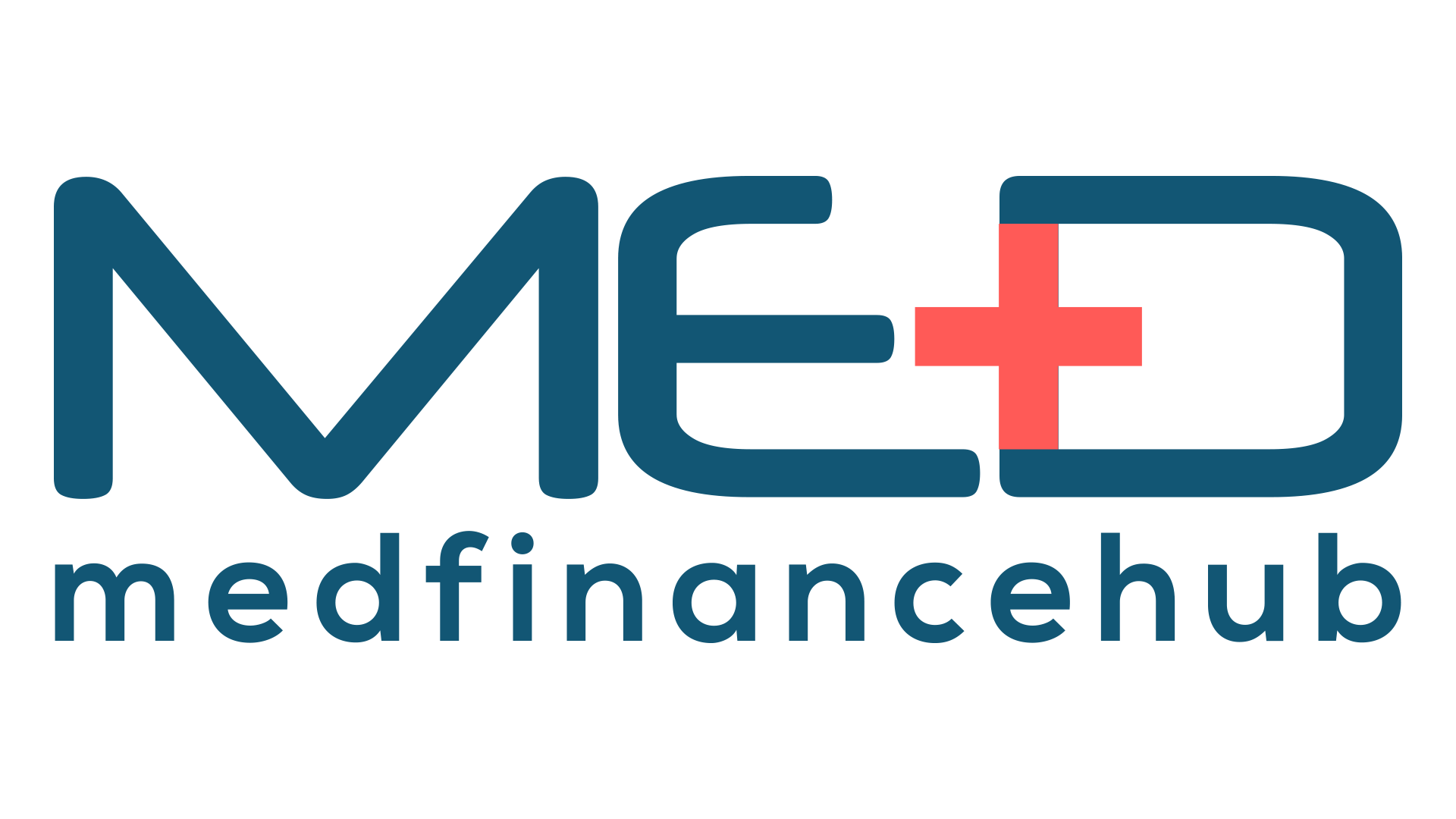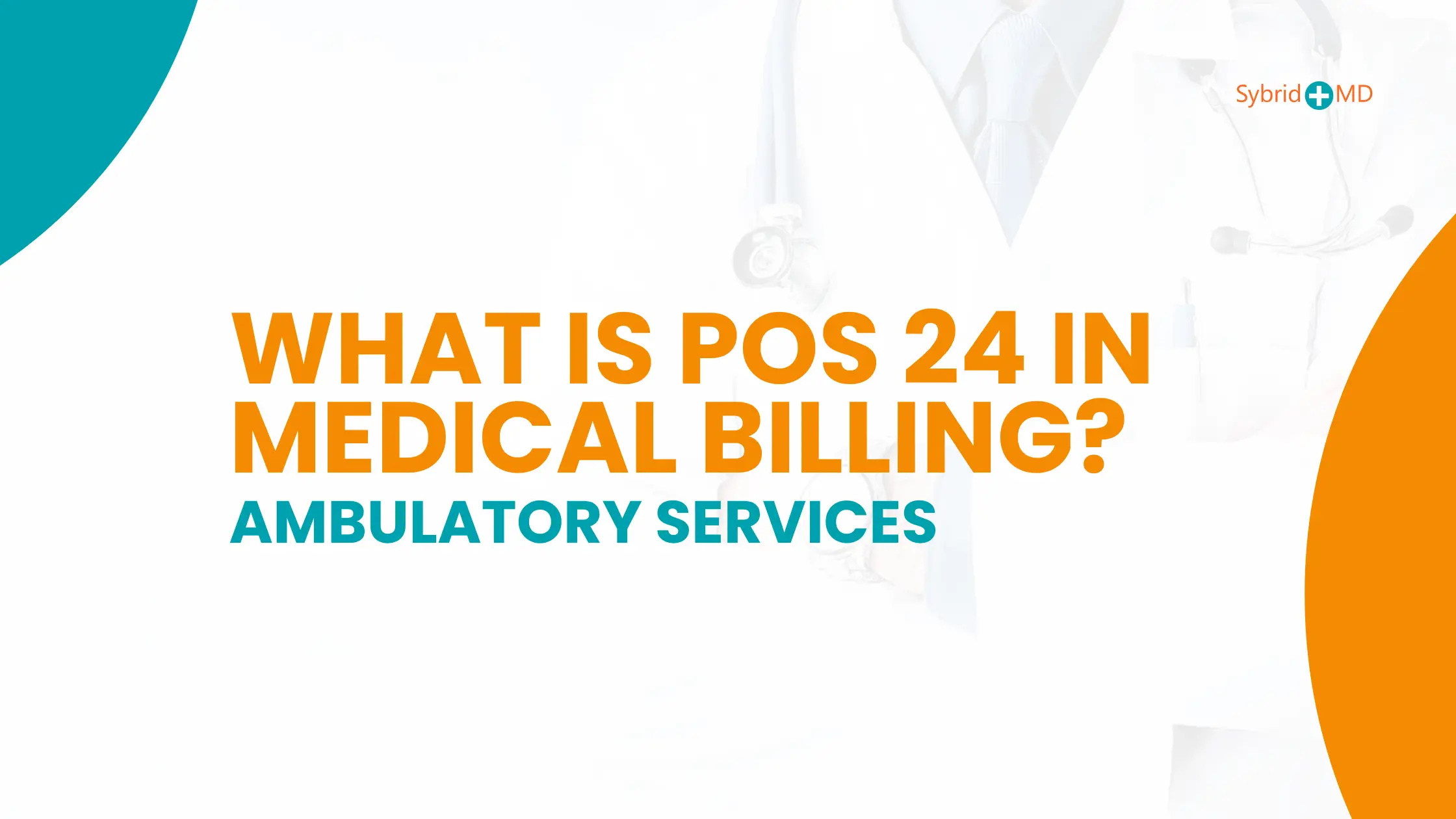In the case of medical billing, the correct utilization of Place of Service (POS) code will guarantee correct reimbursement and compliance. POS 24 in particular used the services offered in Ambulatory Surgical Centers (ASCs). This article describes POS 24, elaborates on other POS codes and gives documentation, FAQs and billing insights.
What Is POS 24 in Medical Billing?
POS 24 Ambulatory Surgical Center (ASC)
POS 24 applies when outpatient surgical procedures take place in certified Ambulatory Surgical Center (ASC) – a freestanding facility not attached to a hospital. Such procedures do not involve overnight stay and are billed as ASC Fee Schedule under Medicare or under private insurance contracts.
Characteristics of the System of POS 24 in Medical Billing
A Place of Service (POS) code 24 designates the provision of a healthcare service at a facility that qualifies as an Ambulatory Surgical Center (ASC). This is an independent non-hospital entity whose core operation is to offer same-day surgical procedures for patients who do not need admission on the night of the procedure. Such centers are intended for elective and minimally invasive procedures, assumed to be safe to be conducted outside the hospital environment.
POS 24 is distinguished by the setting. The ASC has to be freestanding, it cannot be a hospital campus. Although running as stand-alone organizations, such centers are held to a high standard of safety, staffing and equipment as enforced through Medicare and/or state health authority. Medicare certification or licensing by proper state bodies is prerequisite to bill in POS 24. Without this certification, services may not be able to be paid for by Medicare or many private payers.
Under length of stay, patients who receive treatment in an ASC are normally discharged in a few hours after the surgery. Its non-facility-based nature is evident in the fact that there are no overnight stays, which carefully sets POS 24 apart from either inpatient (POS 21) or hospital outpatient departments (POS 22). Due to the favorable cost-effectiveness and efficiency, the convenience of being able to perform surgical procedures in a streamlined, outpatient setting is one of the reasons why ASCs are preferred.
Provision of services under POS 24 is billed through CMS-1500 form, which is the normal for outpatient and professional services. Unlike hospital services that are submitting claims using the UB-04 form, ASC procedures billed with POS 24 are streamlined by physician submitting guidelines, including itemized procedure and diagnosis codes.
The payment system belonging to POS 24 is different for a payer. For Medicare, it’s for the Ambulatory Surgical Center Payment System (ASCPS). This system attaches payment rates according to the type of procedure executed, as divided by CPT (Current Procedural Terminology) codes. Private insurance organizations may set their payment schedules or contract individual rates with ASCs, but will generally follow the construct of Medicare’s ASC schedule.
| Attribute | Details |
| POS Code | 24 |
| Setting | Ambulatory Surgical Center (not hospital-based) |
| Stay Duration | Same-day, no overnight |
| Procedure Type | Elective, outpatient surgeries |
| Billing Form | CMS-1500 |
| Payment System | ASC Payment Schedule (Medicare/private) |
| Certification | Required (Medicare/state-approved ASC) |
Common Procedures in ASCs
| Procedure | CPT Code | Specialty |
| Cataract surgery | 66984 | Ophthalmology |
| Colonoscopy with biopsy | 45380 | Gastroenterology |
| Arthroscopic knee surgery | 29881 | Orthopedics |
| Carpal tunnel release | 64721 | Orthopedics/Neuron |
| Hernia repair | 49505 | General Surgery |
| Ear tube insertion | 69436 | ENT |
When to Use POS 24
If the surgical procedure is used, use POS 24.
- Performed in a freestanding ASC
- Conducted on an outpatient basis
- Medicare or private payer approved
- Medi-factly documented with medical necessity and CPT/ICD-10 codes
Avoid POS 24 for hospital procedures or in-office procedures.
ASC Billing vs. Other Settings
| POS Code | Facility Type | Use When |
| 11 | Physician Office | Routine care, minor in-office procedures |
| 21 | Inpatient Hospital | Extended stays, inpatient surgeries |
| 22 | Hospital Outpatient Dept. | Outpatient surgery inside a hospital |
| 24 | Ambulatory Surgical Center | Same-day surgery in a licensed ASC |
Bill and Documentation Desires for POS 24
If claims are being submitted through POS 24, the documentation has to be proper. Insurance payers, such as Medicare, need the outpatient surgeries in Ambulatory Surgical Centers (ASCs) to be well documented to facilitate reimbursement. Here’s what each element means:
Accurate CPT/HCPCS Procedure Codes
A surgical procedure uses CPT (Current Procedural Terminology) and HCPCS (Healthcare Common Procedure Coding System) codes. These codes should perfectly mirror the service given in the ASC. For instance, if a cataract surgery is done, a coding, CPT code 66984 should be used. Payment rate under the ASC Fee Schedule is also determined by procedure code.
ICD-10 Diagnosis Codes
The ICD-10-CM codes reflect the medical basis, or diagnosis, which warrants the surgery. These codes are to conform to the procedure and establish a medical need. For instance, for cataract removal, an ICD-10 would apply like H25.11 (Age-related nuclear cataract, right eye). Claim denials may occur due to inaccurate or unsupported diagnoses.
POS 24; Listed in Box 24B on the CMS-1500 Claim Form
Outpatient and professional services claims are sent in using the CMS-1500 form. Box 24B on this form requires the Place of Service (POS) code; however, for this case, it should be 24. Multiple wrong entries of the POS code may result in wrong reimbursement rates or the claim being rejected.
Provider NPI numbers, ASC NPI numbers
Each healthcare provider and a facility have a different National Provider Identifier (NPI). Claims need to contain the NPI of the surgeon or attending doctor, alongside the NPI of the Ambulatory Surgical Center. Such identifiers validate credentials and locations of the billing entities, and make them transparent and traceable.
Operative Report and Evidence of Medical Necessity
An operative report describes what was done and the results. This report is very important if a claim is audited. Also, the medical necessity must be documented, which is to say that the surgery must be evident as necessary for the treatment of an ailment, not cosmetic or elective, without a need for a reason.
POS 15 in Medical Billing
POS 15 in Medical Billing means services offered in a Mobile Unit (e.g., Diagnostic Labs, Screening Services-car/vehicle delivered). It is frequently used to conduct outreach programs in remote or unserved populations, primarily for radiology, mammograms, or vaccinations.
POS 20 in Medical Billing
POS 20 in Medical Billing means services that are offered in an Urgent Care Facility. These centers provide treatment of minor injuries or a sudden illness without ER access. POS 20 guarantees walk-in clinics will receive just compensation for unscheduled but urgent, non-emergency medical care.
POS 21 in Medical Billing
POS 21 in Medical Billing is applied in Inpatient Hospital setting where the condition is formalized as the patient is admitted there. It concerns surgeries, trauma care and long procedures. The system of reimbursement takes place within the Inpatient Prospective Payment System (IPPS), and is conducted through the use of the UB-04 form.
POS 11 in Medical Billing
POS 11 in Medical Billing is a physician’s office or private clinic. It is the most widely used POS code on the outpatient billing. Consider it for normal consultations, preventative care, minor procedures and chronic condition tracking done in office frameworks.
POS in Medical Billing
Place of Service (POS) codes show where a healthcare service has been provided. Every POS has billing and reimbursement implications. In a hospital or office, or indeed within an online environment, using the right POS code guarantees clean claims and timely payment.
POS 02 in Medical Billing
POS 02 in Medical Billing pertain to services offered using telehealth in the patient’s setting that is not their home such as in a clinic or a care facility. This code is critical towards correct charging for distant services using secure video platforms or telemedicine software.
POS 23 in Medical Billing
POS 23 in Medical Billing covers services done in a Hospital Emergency Room. This covers emergency first aid for severe illnesses, wounds or life threating disorders. It makes sure that the claim reflects the urgency and resource intensity characteristic to emergency care environments.
Conclusion
Using POS codes is very important for medical billing, especially POS 24. It guarantees correct reimbursement and legal fulfillment of outpatient surgical services. Starting with an awareness of differences between POS 24 and hospital-based or office-based services, providers and billers can maximize results decisions and avoid expensive mistakes with regard to a range of service settings.
Frequently Asked Questions
What is the primary purpose of POS codes in medical billing?
POS codes define the actual physical location where services were delivered, a direct implication to billing, reimbursement and compliance.
When should POS 24 be used?
Use POS 24 for outpatient surgeries that are carried out outside the certified Ambulatory Surgical Center, not in a hospital or office.
Is it possible to charge a procedure through POS 24 when performed within a hospital outpatient department?
No. Use POS 22 for use in a hospital outpatient setting. POS 24 is dedicated only to freestanding ASCs.
Does Medicare demand ASC certification for POS 24 billing?
Yes. Only Medicare-certified ASCs qualify for payment using POS 24. Private insurers tend to do the same thing.
How much risk does wrong POS coding pose?
POS codes can lead to claim declines, delays, audits, or even fraud investigations if consistent.

